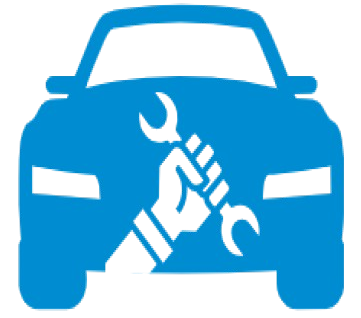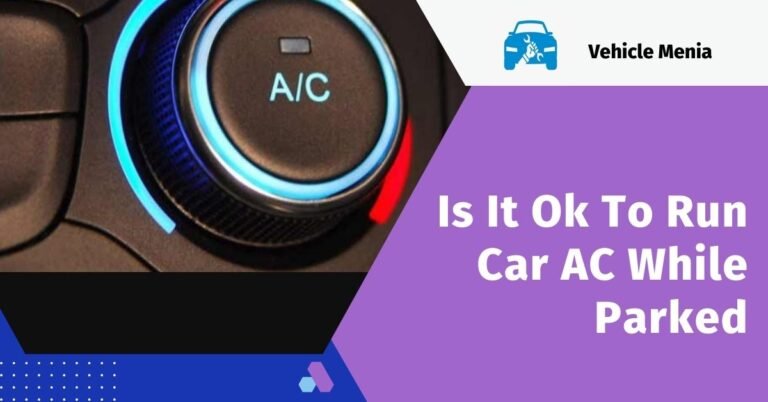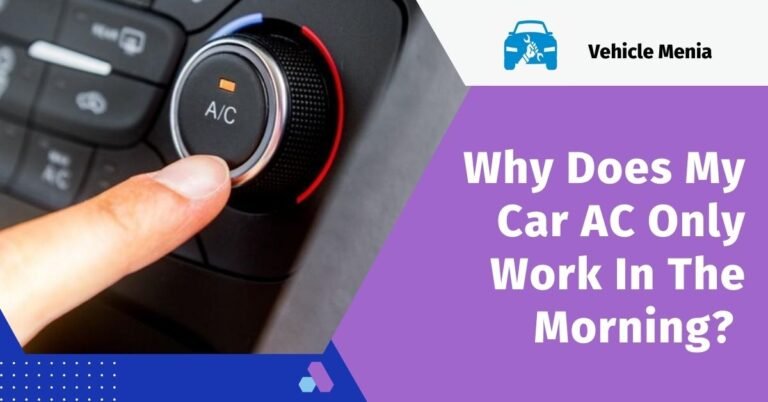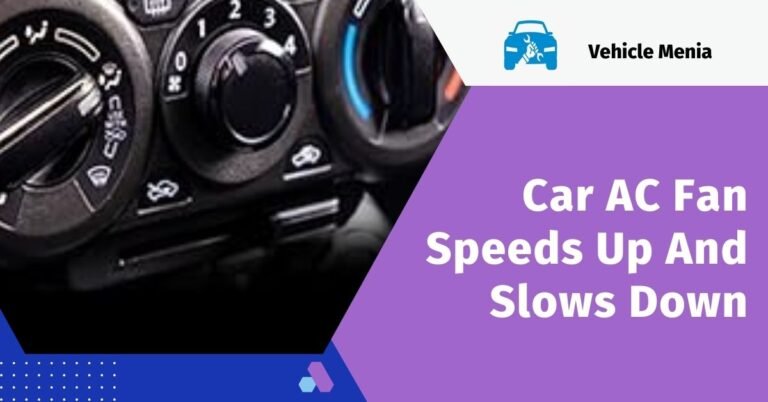If your heater or AC was on during the car wash, and the recirculation door was open, water could have entered the blower motor through the exterior air intake vents. This can lead to water intrusion into the HVAC system, causing the blower motor to stop working or the AC to blow warm air.
Table of Contents
Why Does AC Not Work After a Car Wash?
Water Impact on Ambient Air Temperature Sensor:
The sensor, typically located near the front bumper, can get wet and send incorrect temperature readings to the vehicle’s control system, causing improper AC cooling function adjustments.
Water Intrusion in Electrical Components:
Water can seep into the blower motor’s electrical connections, located in the lower part of the HVAC case near the floor, preventing it from operating correctly. Water exposure can affect the AC compressor’s electrical connections or cooling effectiveness, potentially preventing the compressor clutch from engaging properly.
Condensation and Cooling Issues:
The condenser, acting like a radiator at the front of the car, might be directly splashed with water during a high-pressure car wash, causing temporary dysfunction or reduced efficiency until it returns to normal temperature.
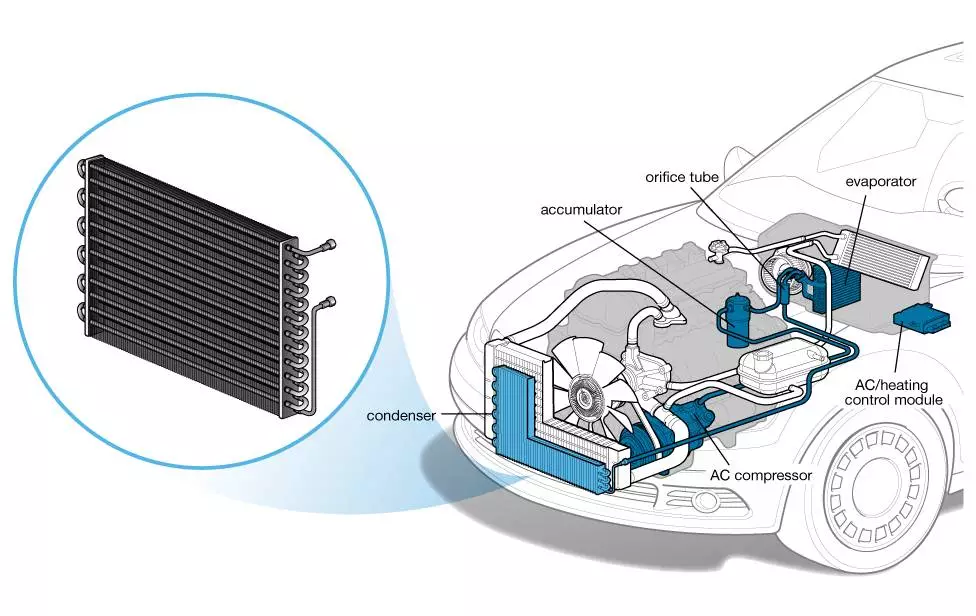
Recirculation Door Open During Car Wash:
Leaving the recirculation feature open can allow water to enter the HVAC system through external air intake vents, affecting the blower motor and other internal components.
Compromised Seals and Protective Covers:
Missing or damaged splash guards and seals can allow water to infiltrate typically protected components, leading to potential short circuits, corrosion, or other moisture-related damages.
Waterlogged Condenser:
Direct water flow during a car wash can saturate the condenser, hindering its ability to dissipate heat effectively and thus reducing the cooling efficiency of the AC system.
Disrupted Wiring for Clutch Engagement:
Water can disrupt the electrical connections needed for the AC compressor clutch to engage, resulting in the compressor failing to activate and thus preventing the AC from cooling the interior.
Saturated Air Filters:
Air filters can become saturated with water during a car wash, restricting airflow through the AC system and significantly diminishing its effectiveness and efficiency.
Water Infiltration Into HVAC Box:
Water can infiltrate the HVAC box containing critical components like the evaporator and heater core, leading to potential electrical issues or component malfunctions.
Understanding these causes can help in diagnosing and addressing AC issues efficiently, ensuring the system’s functionality is restored promptly after exposure to water.
How To Fix AC After Car Wash?
Fix Ambient Air Temperature Sensor Issues:
Check the placement and condition of the ambient air temperature sensor. If it’s exposed or damaged, relocate it to a less exposed area or replace it if faulty. Use a silicone sealant to waterproof any connections, and consult your vehicle’s manual or a mechanic to ensure it’s correctly installed.
Inspect Water Intrusion in Electrical Components:
- Blower Motor: If the blower motor is affected by water, remove it and thoroughly dry the motor and its connections. Check for rust or corrosion and apply electrical contact cleaner to restore connectivity. If damaged, replace the motor.
- Compressor Connections: Dry and inspect all wiring and connectors associated with the AC compressor. Use dielectric grease to protect these connections from future water damage.
Resolve Condenser Cooling Issues:
After exposure to water, ensure the condenser is completely dry. Check for any debris or dirt that could block airflow and clean it using a soft brush and appropriate radiator cleaner. Regularly inspect the condenser for any physical damages and repair or replace as needed.
Recirculation Door Left Open:
Always switch the AC to internal recirculation mode before entering a car wash. This avoids drawing in water from outside. Periodically test the recirculation flap for proper operation and replace the actuator if it fails to switch modes correctly.
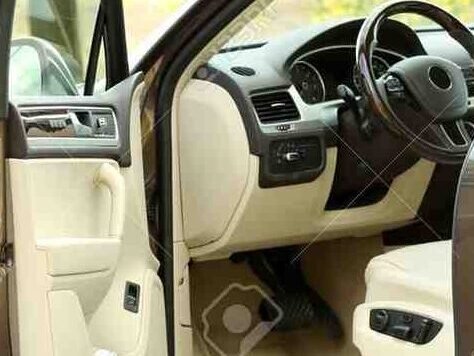
Compromised Seals and Protective Covers:
Conduct a thorough inspection of all undercarriage covers, splash guards, and seals. Replace any that are missing or damaged. Ensure that all underbody panels are securely fastened to prevent water from reaching critical components.
Disrupted Wiring for Clutch Engagement:
Conduct a detailed inspection of the wiring. Replace any corroded or damaged wires, and secure all connections. Routine checks during service appointments can prevent future disruptions.
Saturated Air Filters:
Immediately replace any air filter that has become wet to prevent mold growth and airflow restriction. Keeping spares and checking filters regularly, especially after exposure to water, ensures they function effectively.
Water Infiltration Into HVAC Box:
Open and inspect the HVAC box for moisture and debris. If water is present, dry the components and check for damage. Sealing any identified leaks can prevent recurrence.
Ac Blows Warm Air After Car Wash
After a car wash, encountered an issue where the AC stopped blowing cold air. The AC compressor clutch failed to engage despite confirming the refrigerant levels and checking that all fuses and relays were functional.
Further investigation pointed to potential water damage to the electrical components as the probable cause.
A newly installed ambient air temperature sensor and additional diagnostics suggested water intrusion during the wash could have impacted the electrical system, leading to the malfunction.
Ac Compressor Not Working After Car Wash
Water exposure during a car wash can cause an AC compressor to not engage, often due to electrical disruptions or water intrusion in components like the ambient air temperature sensor or compressor clutch.
To address this, check for wet or dislodged wires and secure all connections. Ensure the compressor and related electrical components are dry and intact.
Related Questions:
Why Is My Ac Not Cooling Even After Cleaning?
The most common reason home AC units fail to cool effectively, even after cleaning, is due to dirty air filters. Another frequent issue is faulty motors that can adversely affect the cooling system. It’s also wise to check the thermostat if cooling suddenly stops, as it might be malfunctioning or incorrectly set.
Why Is My Car Not Working After A Car Wash?
Water from a car wash can sometimes short out electrical components or connectors in vehicles, such as spark plugs, ignition coils, sensors, or fuses, leading to operational issues.
Why Is My Car’s Ac Not Blowing Cold Air?
In cars, a typical reason for the AC not blowing cold air is low refrigerant levels. Refrigerant is essential for absorbing heat from the car’s cabin and releasing it outside, which cools the air that is then circulated back into the cabin.
Conclusion:
In conclusion, AC issues after a car wash are commonly caused by water infiltration into key components such as the blower motor, electrical connections, or the HVAC system. This can disrupt airflow, prevent the compressor from engaging, or cause the system to blow warm air. Practical fixes include inspecting and drying out affected areas like the blower motor, checking wiring and connectors for water damage, and ensuring filters are dry. Preventive measures, such as turning off the AC and recirculation mode during a car wash, can also help avoid such problems.
